Samsung Galaxy Note 10+ review, 4 months later: Even better with Android 10
The Note 10+ is missing a few features, but it is still one of the most robust packages available on Android today.
I'll be frank: I wasn't particularly interested in the Galaxy Note 10+ when it debuted four months ago. But once I started using the phone, I was immediately hooked. The Note 10+ doesn't have a 90Hz panel or any groundbreaking new camera features, with Samsung choosing to focus on fast charging and design.
The gradient pattern makes the Note 10+ immediately stand out — it's one of the prettiest phones Samsung has made to date — and the 45W fast charging combined with a massive 4300mAh battery lets you use it for longer. The S Pen has also picked up new features, and overall you get the best hardware money has to offer.
Samsung has delivered the Android 10 update to the phone at the end of December, bringing its latest UI refresh, One UI 2.0. The interface has meaningful updates that make it even better, and it's astonishing to see how far Samsung has come in this area in the last two years. Here's what I think of the Galaxy Note 10+ after four months of usage.
At a glance
Galaxy Note 10+
Bottom line: The Galaxy Note 10+ has all the features you care about. The large AMOLED panel sets the standard for the industry, the internal hardware is rock-solid, and you get reliable cameras, all-day battery life, and 45W fast charging. Combine that with regular software updates and new feature additions and it's easy to see why the Note 10+ is one of the best phones around.
The Good
- Exquisite display
- Gorgeous design
- Powerful innards
- Outstanding battery life
- Reliable cameras
- Regular software updates
The Bad
- 60Hz panel
- Power button continues to be annoying
$900 at Amazon $1100 at Walmart
Galaxy Note 10+ What has held up
One of the main reasons I use a Samsung flagship year after year is the AMOLED display. Like I said with the Galaxy Note 8 and last year's Galaxy Note 9, Samsung continues to make sizeable gains in display quality with its Note series.
Sure, Samsung played it safe this year by going with a 60Hz panel instead of a 90Hz screen, but in terms of panel quality, there isn't a phone today that comes close to the Note 10+. Interacting with the display on a day-to-day basis is an absolute delight — you get incredibly vibrant colors, excellent contrast levels, and great viewing angles. I'm not exaggerating when I say that this is the yardstick for mobile displays.
Samsung delivers an outstanding display year after year, and the Note 10+ continues that legacy.
Samsung also made significant changes to its design language with the Note 10+. Previous devices in the Note series leveraged Samsung's industrial design, but they never really stood out. That isn't the case with the Note 10+, with the Aura Glow edition one of the most vibrant designs you'll find anywhere today.
The U.S. market doesn't get the crazy designs that are common in Asia, but Samsung has done a masterful job with the gradient pattern on the Note 10+. The mesmerizing colors immediately grab your attention, and while they may not be to everyone's tastes, I love what Samsung has done here. The Note 10+ is the widest and tallest phone I've used in a long time, and while it took a while to get used to the bulk, I liked using the giant 6.8-inch screen.
Another positive design change is the positioning of the front camera cutout. The Note 10+ has a single camera at the front, and the fact that it is centered makes it far less distracting. The positioning of the cutout also ensures that the status icons are no longer pushed to the right. It may not seem like a big deal, but it makes a huge difference in day-to-day usage. The cutout on the S10+ was plain distracting, and that's not an issue on the Note 10+.
The Galaxy Note 10+ may not have many groundbreaking features, but Samsung's ability to iterate and deliver marginally better features with every generation means you're getting a robust phone here. There are no glaring hardware issues like you get on the Pixel 4 XL, and Samsung has made huge gains on the software front in 2019.
I switched away from the Note 10+ to use the Pixel 4 XL for a month, and returning to Samsung's flagship it was easy to make out the hardware differences. When you're spending this much money for a phone, you'd want a device that delivers when it comes to the basics. That's absolutely true here: with 12GB of RAM as standard and 256GB of UFS 3.0 storage, the Note 10+ is a much better long-term investment. I was never anxious about the storage running out — which wasn't the case with the Pixel 4 XL.
Continuing on the hardware theme, the in-screen fingerprint reader is great and I didn't have any issues with it. It is fast to authenticate and reliable in day-to-day usage, and works well in conjunction with face unlock. Elsewhere, the stereo sound makes it highly enjoyable to play games and watch videos on the phone. The Note 10+ works particularly well for multimedia playback thanks to the large screen and vibrant colors.
Yes, you're paying a premium for the Note 10+, but you're getting the best hardware that's available in the industry. With that comes the peace of mind that you're getting a phone that will last several years with ease.
Samsung rolled out the Android 10 update to the Note 10+ at the end of December, introducing a few new features and subtle tweaks to the user interface. One UI 2 is definitely a move in the right direction, and it's great to see Samsung take user feedback seriously and make tangible gains in this area.
Samsung invested in its own gesture navigation system, and with One UI 2.0 you get the option of choosing between three styles: the legacy three-button layout, Samsung's One UI 1.0 gestures, or the new Android 10 gestures. There's also a native screen recorder, and Samsung is now using Android 10's native system-wide dark mode, ensuring more apps work in dark mode automatically.
It took Samsung a few months to roll out the Android 10 update, but it has done a great job delivering monthly security updates and bug fixes.
The differentiator for the Note series has been the S Pen, and on the Note 10+ the stylus has picked up even more features. I'll be honest here; I didn't use the S Pen with any regularity over the last four months. My usage was limited to two things: using it as a remote shutter button and switching between the front and rear cameras, and taking handwritten notes during product briefings. In both scenarios, the S Pen has worked flawlessly.
Another area that I haven't had any issues with is battery life. The Note 10+ continues to deliver over a day's worth of use without fail, and battery life, in general, has been reliable enough that I never had any anxiety about the device running out of juice before the end of the day. What's particularly great is the fact that it now has 45W fast charging, and even though I routinely used 25W chargers with the phone, I was able to charge the device from flat to 100% in just over an hour, and that was more than enough for my use case.
Rounding out the hardware features is Samsung Pay, which is still the most seamless mobile payments service around. I particularly like the fact that it works with point of sale machines that don't have NFC, and I routinely miss the feature when switching away from a Samsung phone. Samsung should really license out the feature to other manufacturers, but that isn't likely given its unique hardware requirements (there's a specialized coil at the back of the Note 10+ that allows Samsung Pay to use MST).
Finally, we get to the camera on the Note 10+. Samsung hasn't made any changes from the S10 series, and while the overall image quality isn't quite as good as the Pixel 4 XL, nor is it as feature-rich as the P30 Pro, it is a reliable workhorse.
Galaxy Note 10+ What isn't so great
With even Google switching to 90Hz panels, Samsung missed the boat by using regular a 60Hz screen on the Note 10+. A high refresh rate 90Hz panel would have made the device even better, but it looks like we'll have to wait until the Note 11 for that particular feature to show up.
Samsung needs to stop messing with basic hardware features and leave the power button where it should be: on the right side of the phone.
The only other issue that I have when it comes to the hardware is the positioning of the power button. I finally got used to the button being on the left side, but then I switched to the Pixel 4 XL and it took me a week to realize that the phone doesn't turn on by hitting the volume down button. I switched back to the Note 10+ and I'm once again realizing just how irritating it is to find the power button on the wrong side of the phone.
I'm also annoyed at the fact that the Note 10+ doesn't have a 3.5mm jack. Don't get me wrong; Samsung is far from the only manufacturer that is doing this, but the Note series has always been catered to power users. It is the phone that is meant to have all the features, and it doesn't make sense for Samsung to omit the analog jack.
There really isn't any reason for Samsung to remove the jack here; it has been offering water resistance with the jack intact for years, and the battery isn't significantly larger to warrant the move. But the industry as a whole seems intent on making the switch to Bluetooth, and Samsung is following the pack here. What this means is that if you want wired audio, LG is really the only brand left, but that doesn't seem like a decent option anymore.
Galaxy Note 10+ Four months later
I ended up using a lot of phones in 2019, and four devices have stood out: the Oneplus 7T, Galaxy S10+, P30 Pro, and the Galaxy Note 10+. It's hard to pick just one, but the fact that Samsung has two devices on the list illustrates just how dominant its phones have become. There was a lot to like both on the hardware and software side of things, and while features like a 90Hz panel would have made it an even more compelling device, the sheer quality of the display makes up for that particular omission.
The Note 10+ is the default option if you're looking for a flagship in the U.S. Huawei's current situation with the U.S. government is unlikely to change anytime soon, and Google's misadventures on the hardware front make the Pixel 4 XL a non-starter. If you want a high-end phone with robust hardware and exquisite display, you'll have to pick up the Note 10+. One UI 2.0 is the icing on the cake, with Samsung offering exciting new features while making further refinements to its user interface.
Four months later, the Galaxy Note 10+ is one of the best phones available today. The phone has a stunning AMOLED display with vibrant colors, powerful internal hardware combined with generous memory and internal storage, all-day battery life, and fast charging. Then there's Samsung Pay, the S Pen, biometrics that just work, reliable cameras, and regular updates.
Outstanding in every way
Galaxy Note 10+
$900 at Amazon $1100 at Walmart
Everything you need from a flagship phone.
The Galaxy Note 10+ has all the features you care about. The large AMOLED panel sets the standard for the industry, the internal hardware is rock-solid, and you get reliable cameras, all-day battery life, and 45W fast charging. Combine that with regular software updates and new feature additions and it's easy to see why the Note 10+ is one of the best phones around.
from Android Central - Android Forums, News, Reviews, Help and Android Wallpapers https://ift.tt/3aiLcpI
via IFTTT
 Reviewed by site
on
6:02 ص
Rating:
Reviewed by site
on
6:02 ص
Rating:
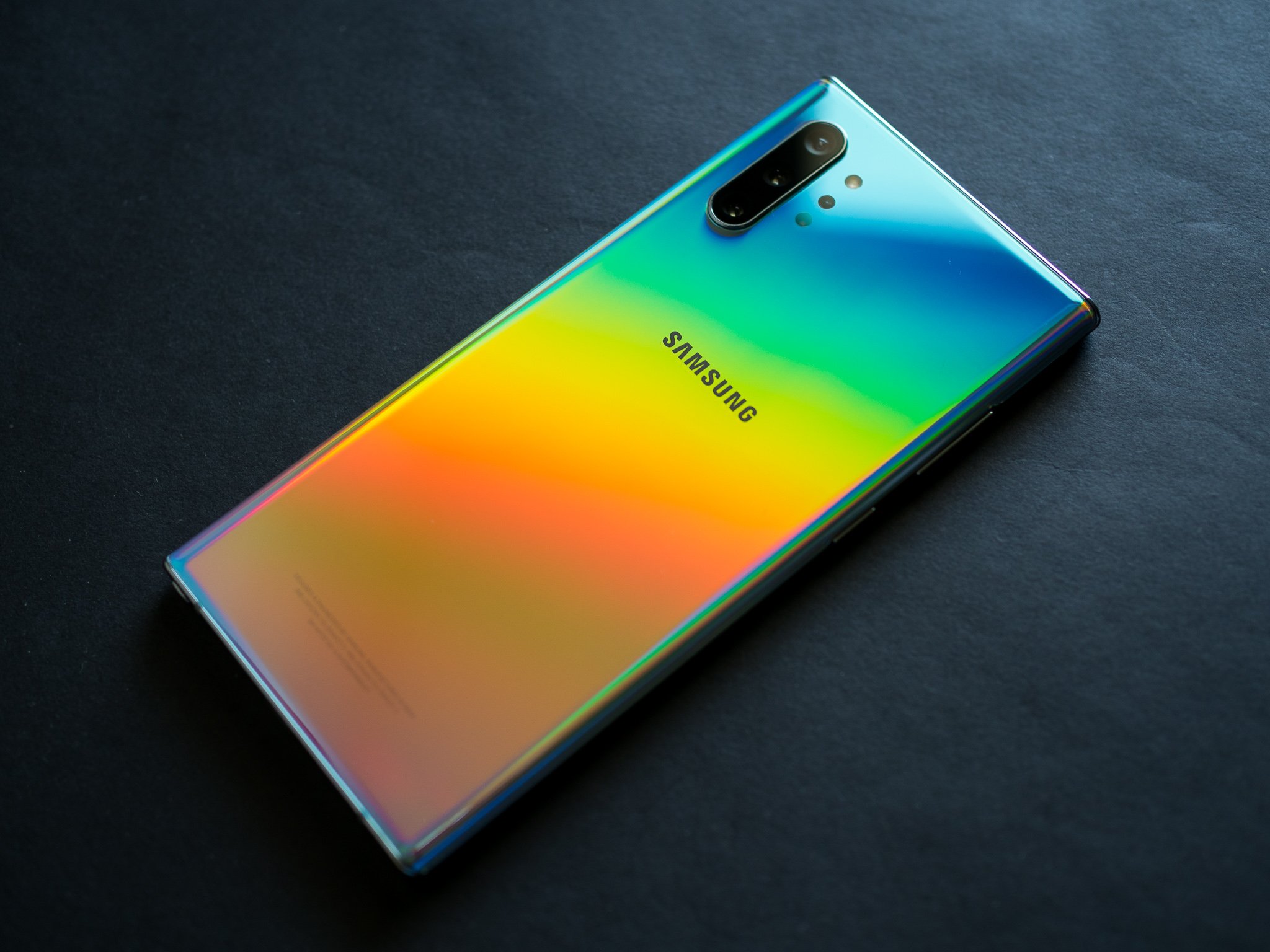
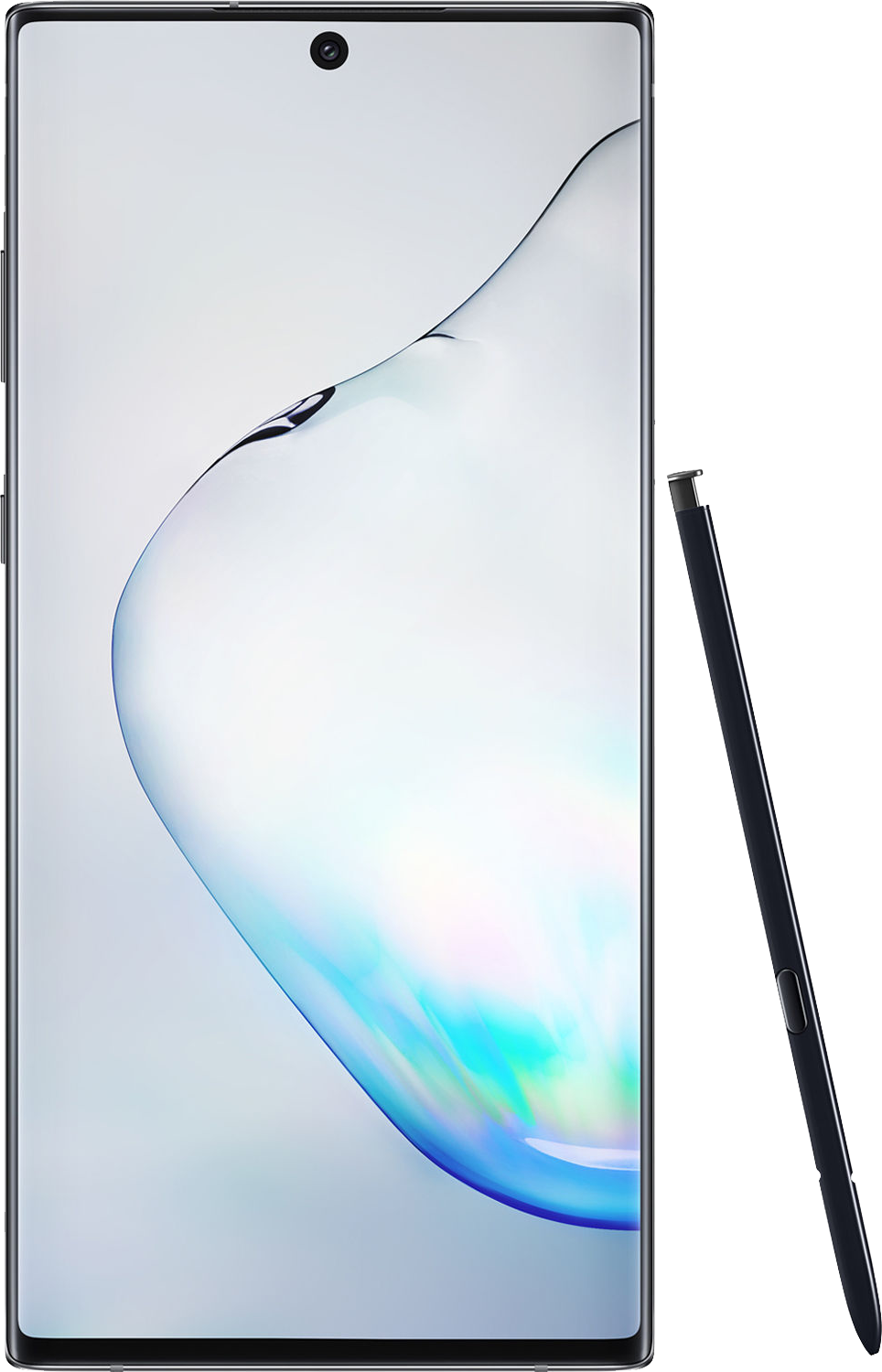
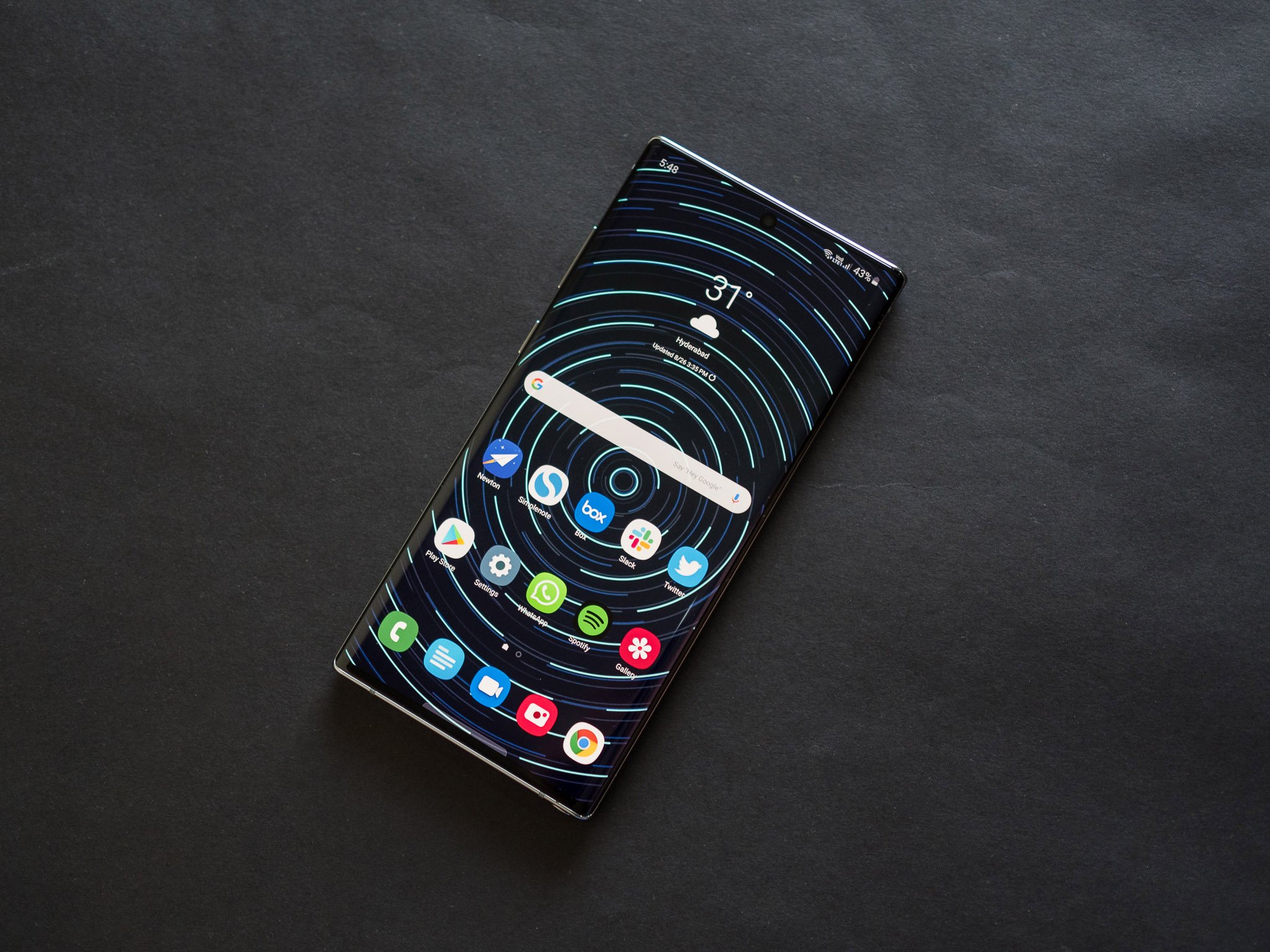
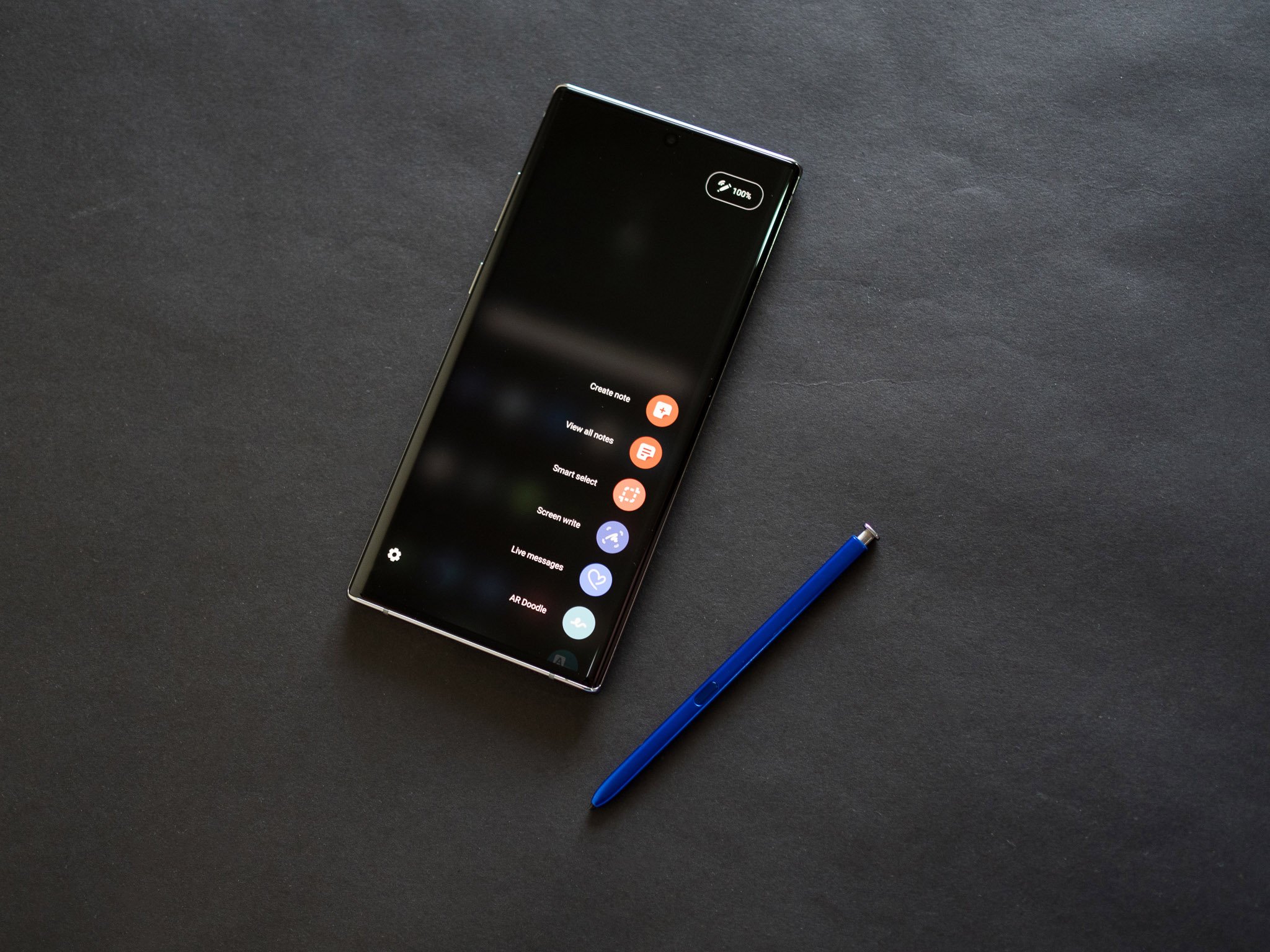
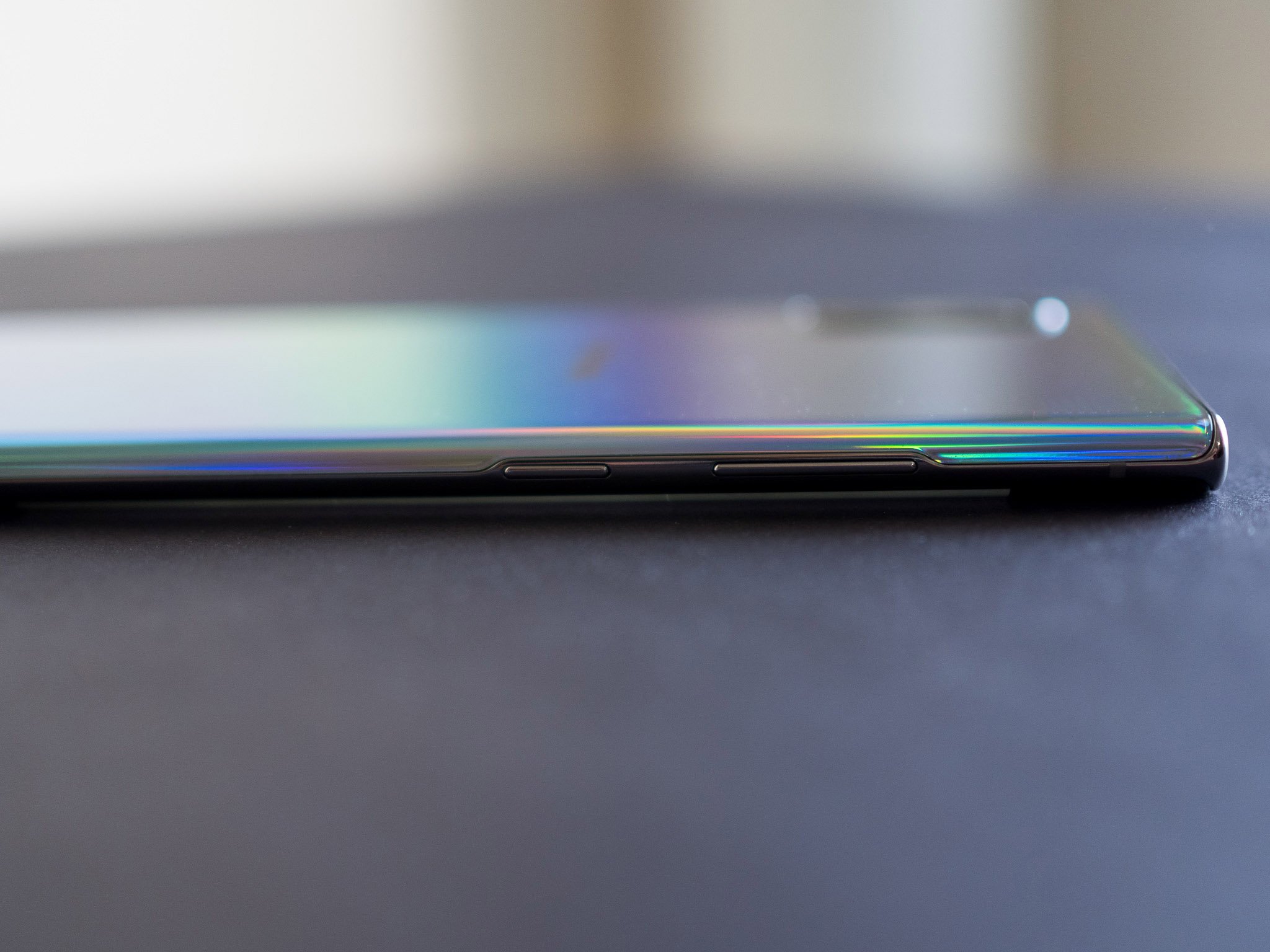
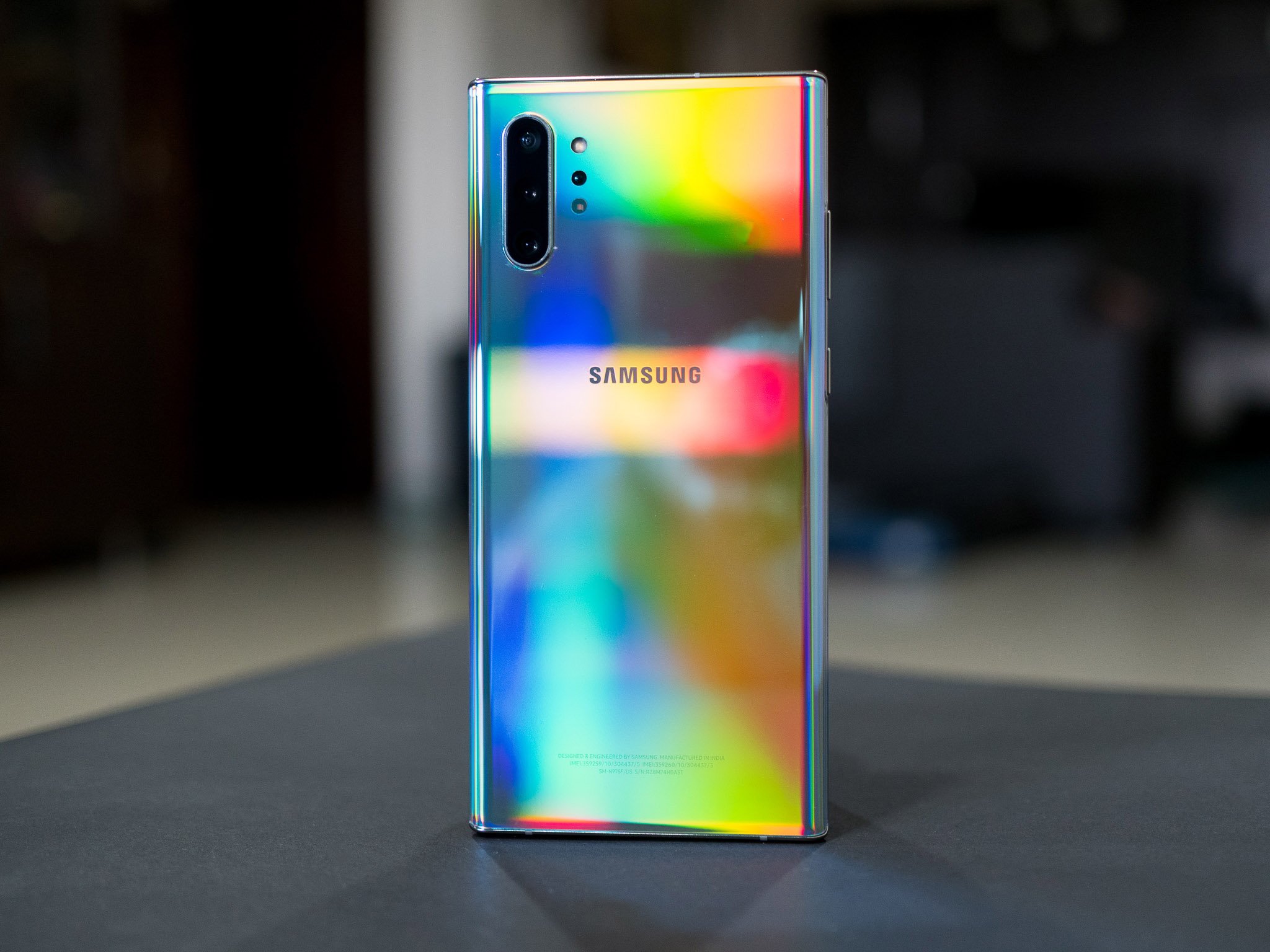
ليست هناك تعليقات: